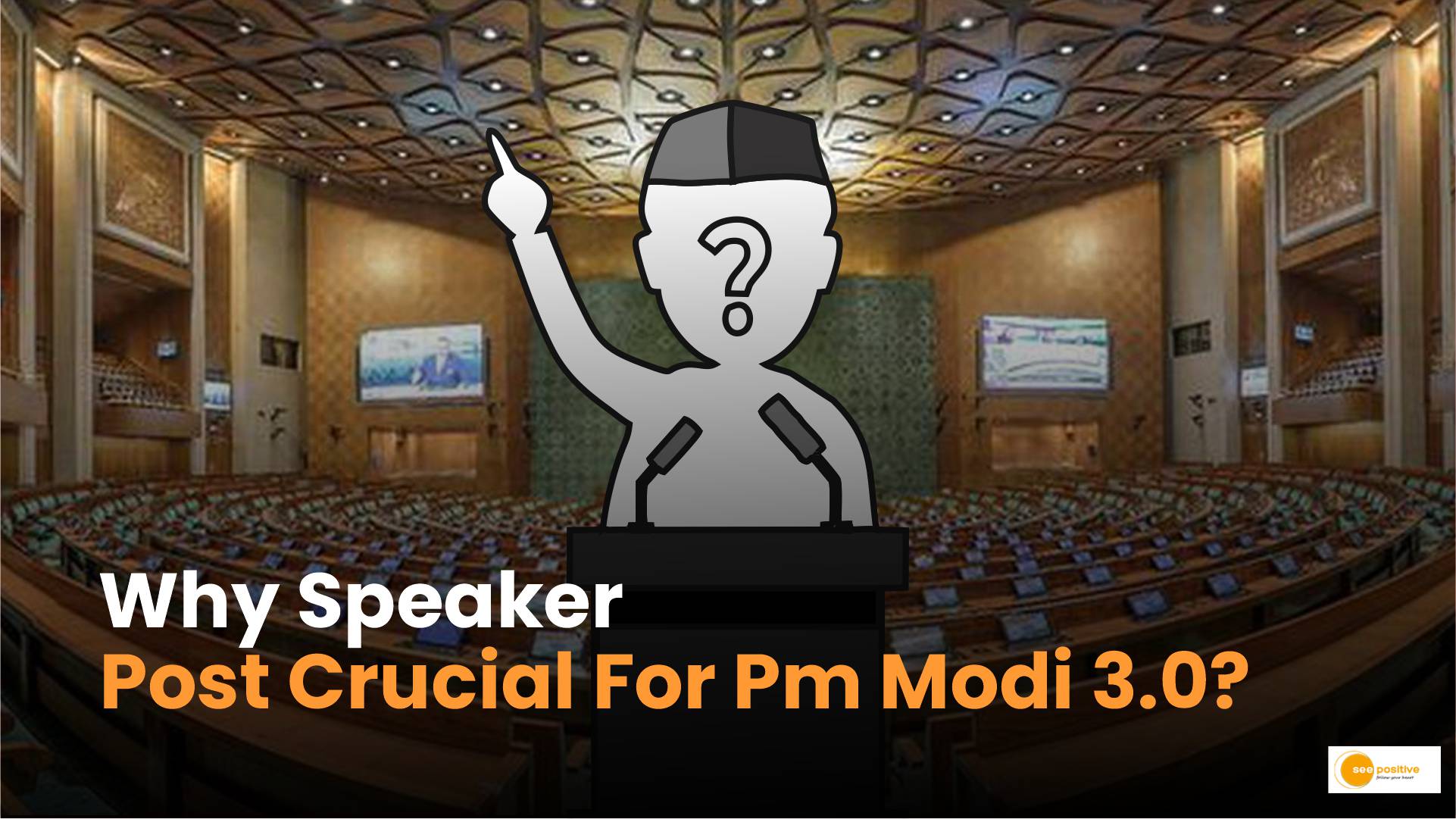The Lok Sabha is scheduled to elect its new Speaker on June 26. The newly-elected 18th Lok Sabha will convene for its inaugural session from June 24 to July 3. As speculation continues over who will be the next Speaker, the Opposition INDIA bloc has emphasized that this crucial post should be allocated to the BJP-led National Democratic Alliance (NDA) partners – the Janata Dal (United) and the Telugu Desam Party (TDP). Here’s why the Speaker’s post is critical for PM Modi’s third term and how the Speaker is elected.
Why the Speaker’s Post Matters this Time?
Reliance on Allies: Unlike the previous two terms of PM Modi’s government, where the BJP enjoyed an outright majority, the third term relies heavily on its allies. The BJP secured 240 Lok Sabha seats, 32 short of the majority mark, in the recently concluded Lok Sabha Elections 2024, the results of which were announced on June 4. Andhra Pradesh Chief Minister N Chandrababu Naidu’s TDP and Bihar Chief Minister Nitish Kumar’s JD(U) won 16 and 12 seats respectively, making them key stakeholders in the new PM Modi-led government.
Strategic Importance: The Speaker’s role becomes even more significant due to the coalition nature of the current government. With the BJP not having an absolute majority, the Speaker’s position is vital for maintaining order and ensuring smooth legislative processes. This role is crucial in preventing potential crises on the floor of the House.
Crucial Support from Allies: TDP leaders have stated that the candidate for the Speaker must be jointly decided by NDA partners. JD(U) leader KC Tyagi has indicated that the party might support the candidate nominated by the BJP. This shows the need for consensus and cooperation among the allies, emphasizing the importance of the Speaker’s role in balancing these interests.
How is the Lok Sabha Speaker Elected?
Election Process: The rules for electing the Speaker are laid down in Article 93 of the Constitution. The Speaker’s post falls vacant just before the new Lok Sabha meets for the first time, which in this case is June 24.
Before the Parliament session begins, the President appoints a Pro-tem Speaker to administer the oath of office to the newly elected Members of Parliament (MPs). The first two days, June 24 and June 25, are dedicated to the oath-taking of the newly elected MPs. June 26 has been fixed for electing the new Speaker of the Lok Sabha.
Notices for motions supporting the candidates must be submitted by members of the house before 12 noon on June 25, a day prior to the elections. A Lok Sabha Speaker is elected by a simple majority, meaning more than half of the members present in the house have to vote for a particular candidate to become the Speaker of Lok Sabha.
Also Read: How is the Government Formed? Understanding the Process
The Powers of a Lok Sabha Speaker
The Speaker is a crucial position in the Lok Sabha, responsible for running the House and deciding the agenda for parliamentary meetings. The Speaker allows motions such as adjournments and no-confidence, among others.
In case of any dispute regarding the rules of the House, the Speaker interprets and applies these rules, which cannot be challenged. The Speaker’s chair must be non-partisan, given that the House has members from both ruling and opposition parties. The Speaker’s role assumes even more significance since they are also an elected member of the Lok Sabha, representing a particular party.
There have been occasions when Speakers quit their party before assuming the role, like N Sanjiva Reddy, who resigned from the Congress after being elected Speaker of the fourth Lok Sabha in March 1967. Since the BJP relies on its allies, there could be a situation where the government faces a crisis on the floor of the House, and the Speaker’s role becomes crucial in such scenarios.
The Speaker also has the power to punish unruly behavior and even disqualify members on grounds of defection under the 10th schedule of the Constitution.
Also read: Why is the Position of Lok Sabha Speaker Important
Conclusion
The election of the Lok Sabha Speaker is a pivotal event in the Indian parliamentary process, especially in a coalition government scenario. The role of the Speaker is crucial in ensuring the smooth functioning of the House, maintaining order, and upholding the democratic processes. As the BJP and its allies navigate this crucial election, the choice of the Speaker will have significant implications for the stability and effectiveness of PM Modi’s third term in office.


